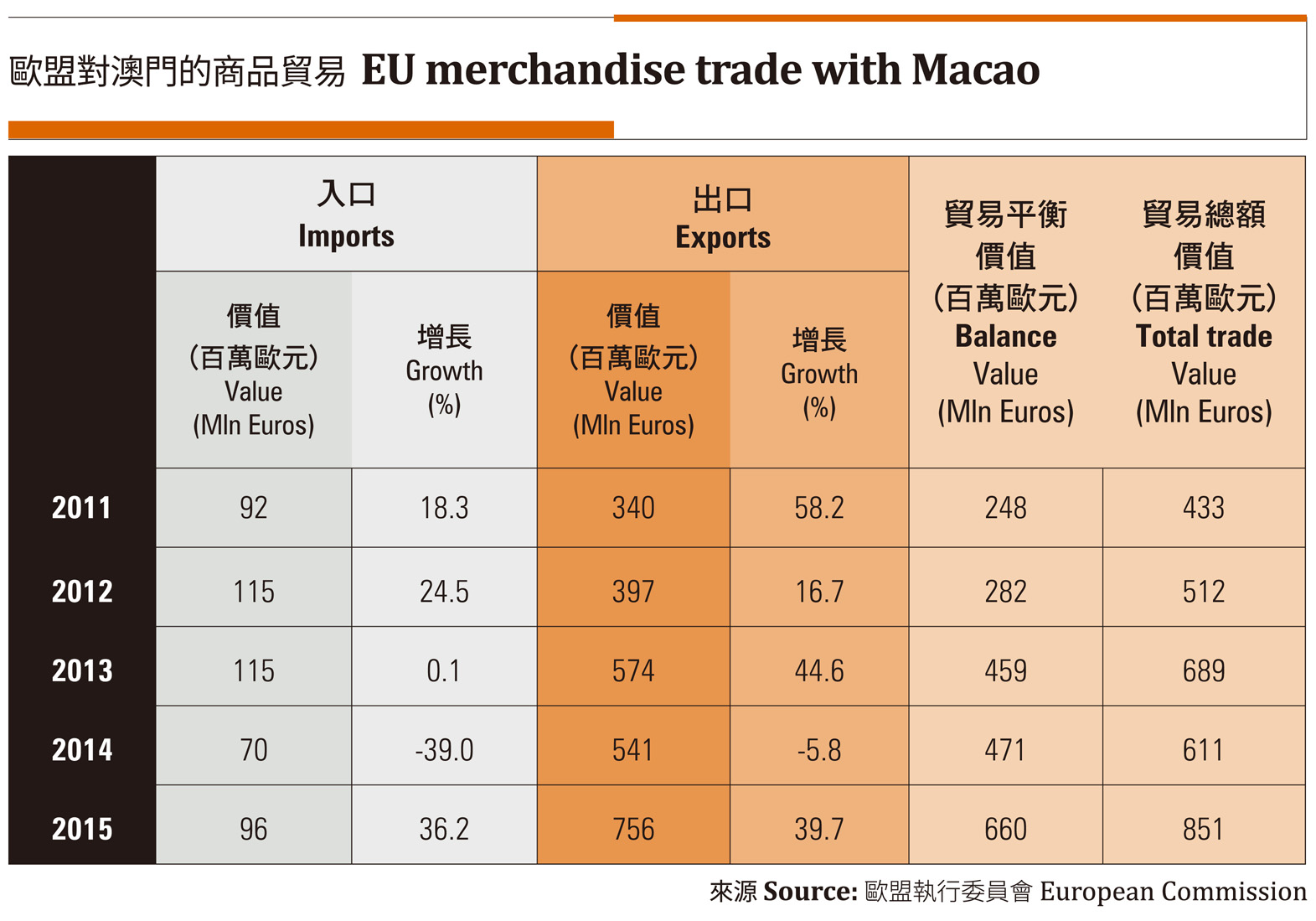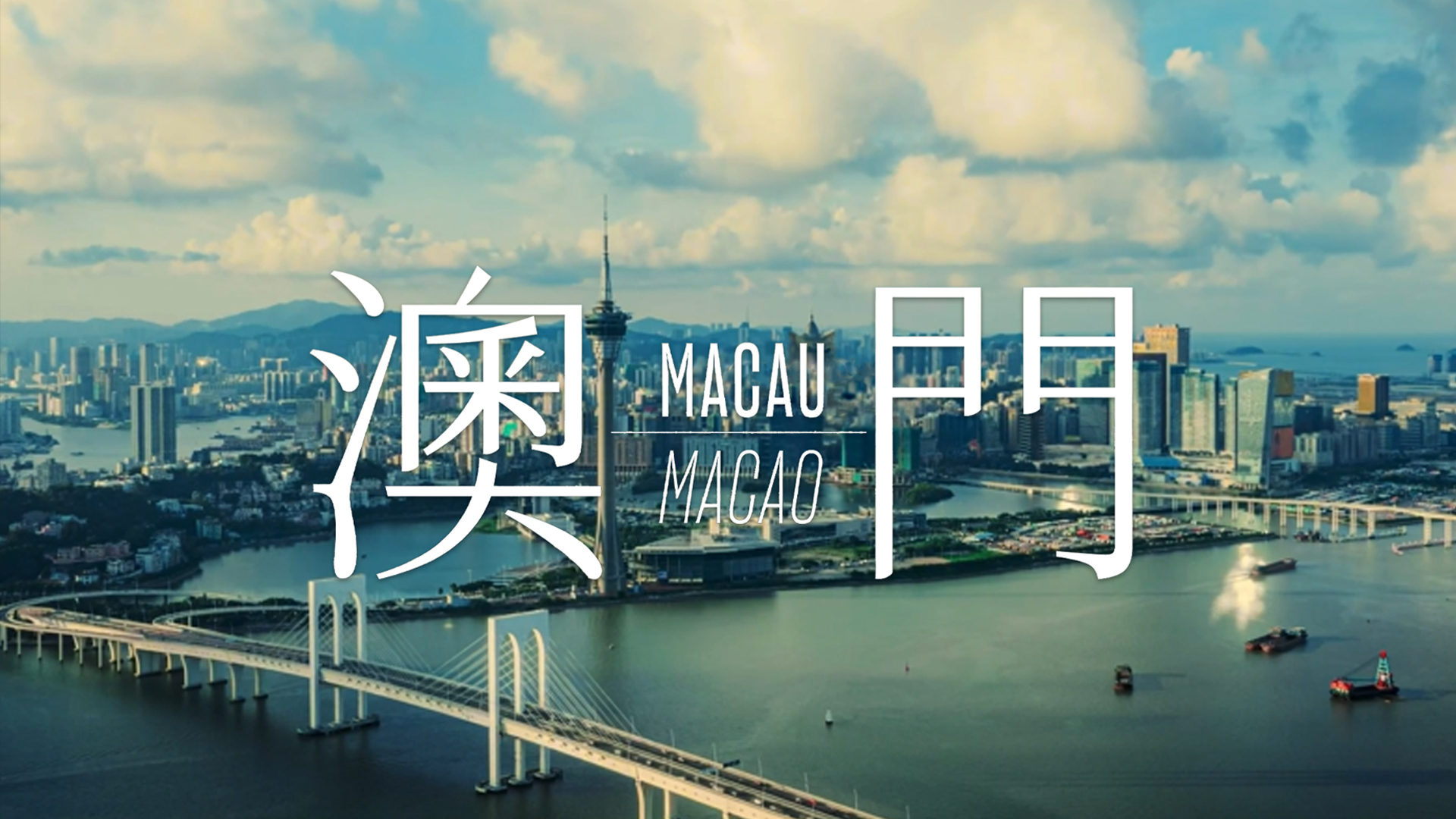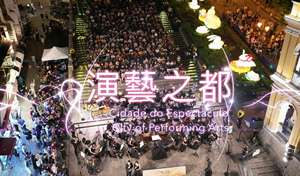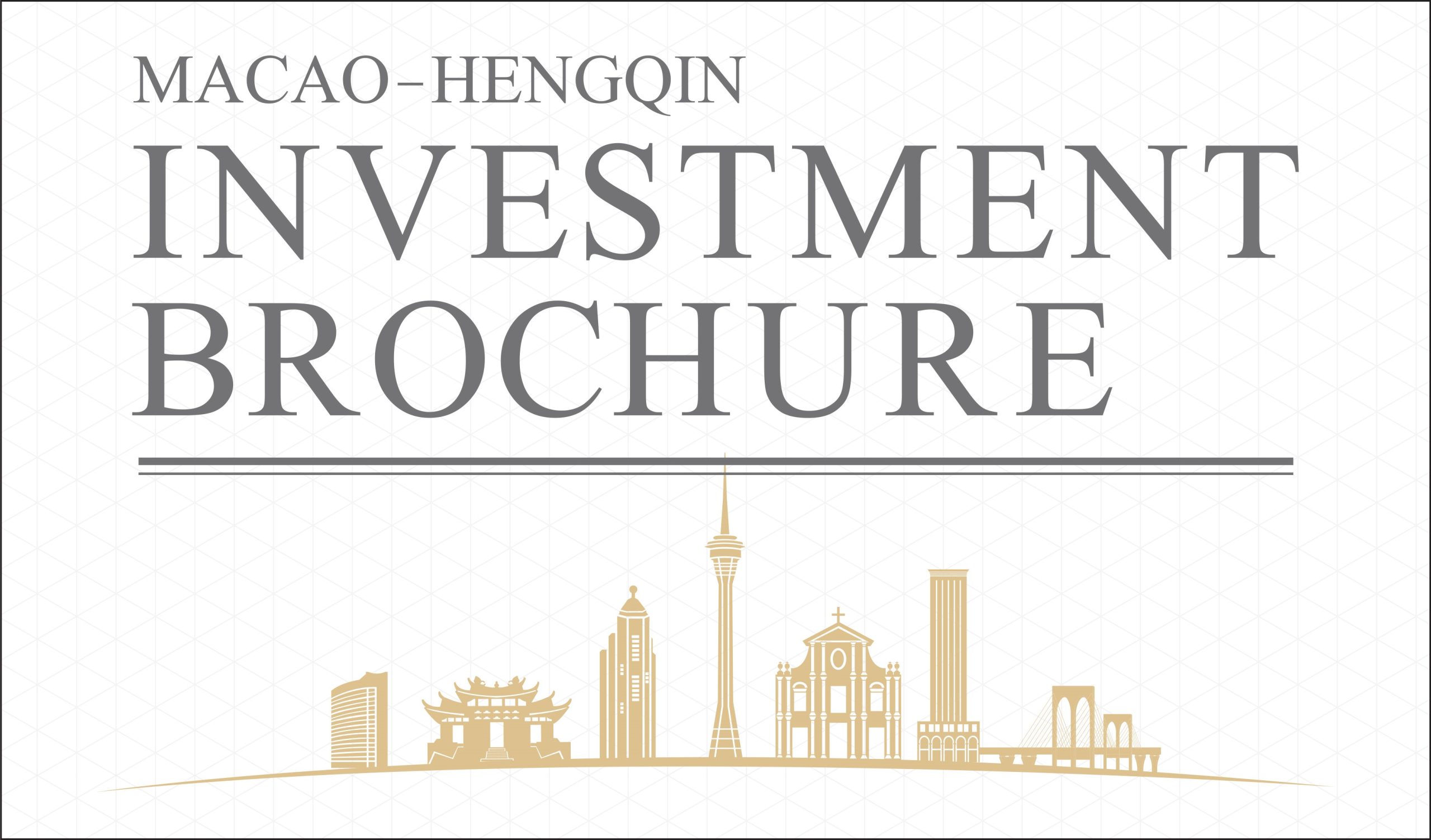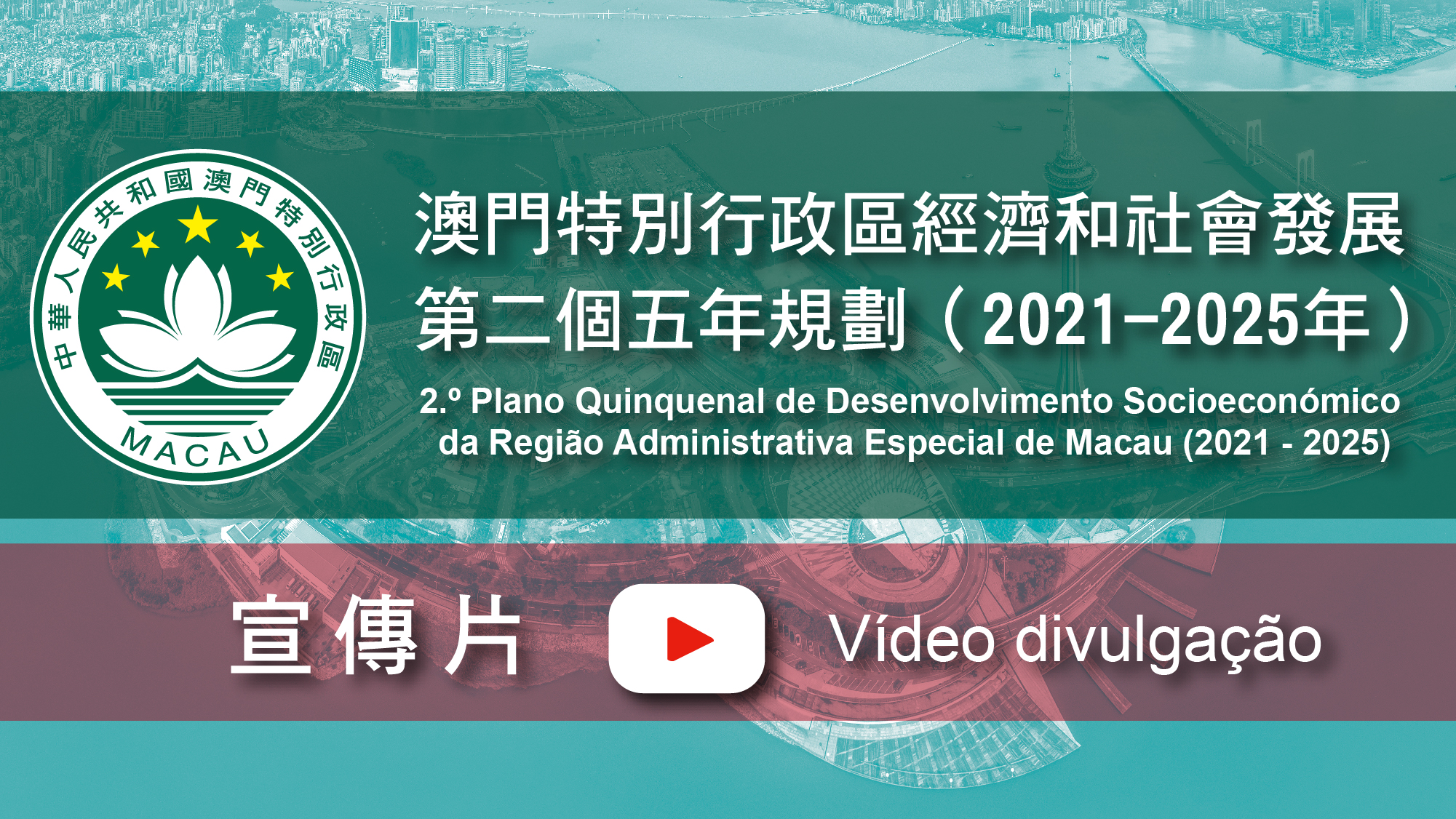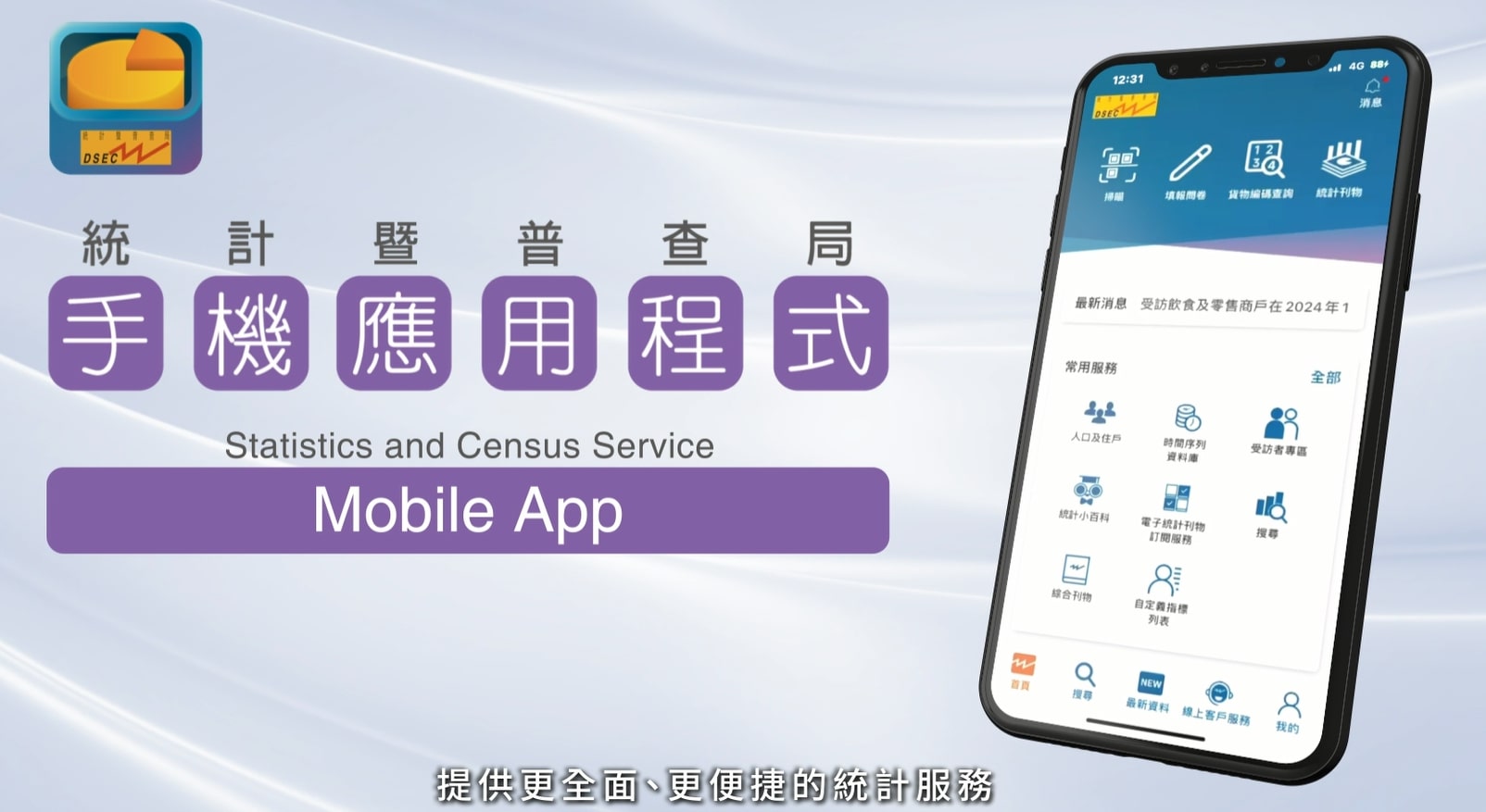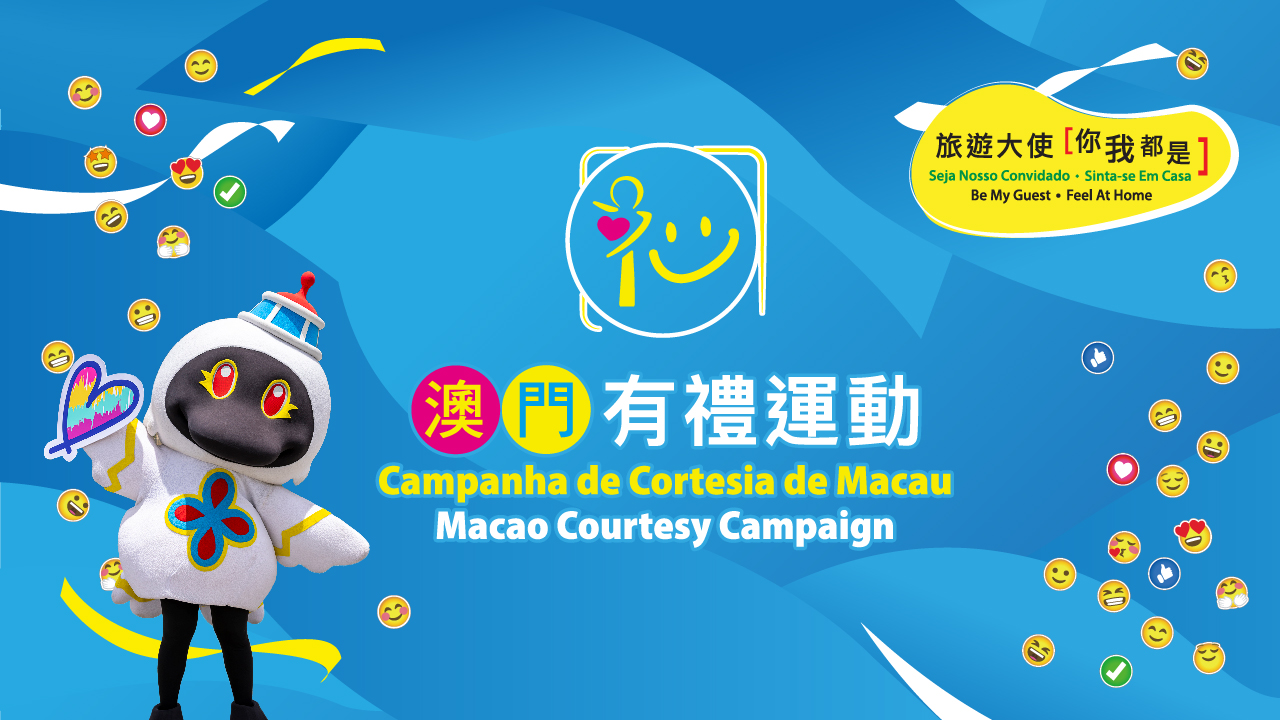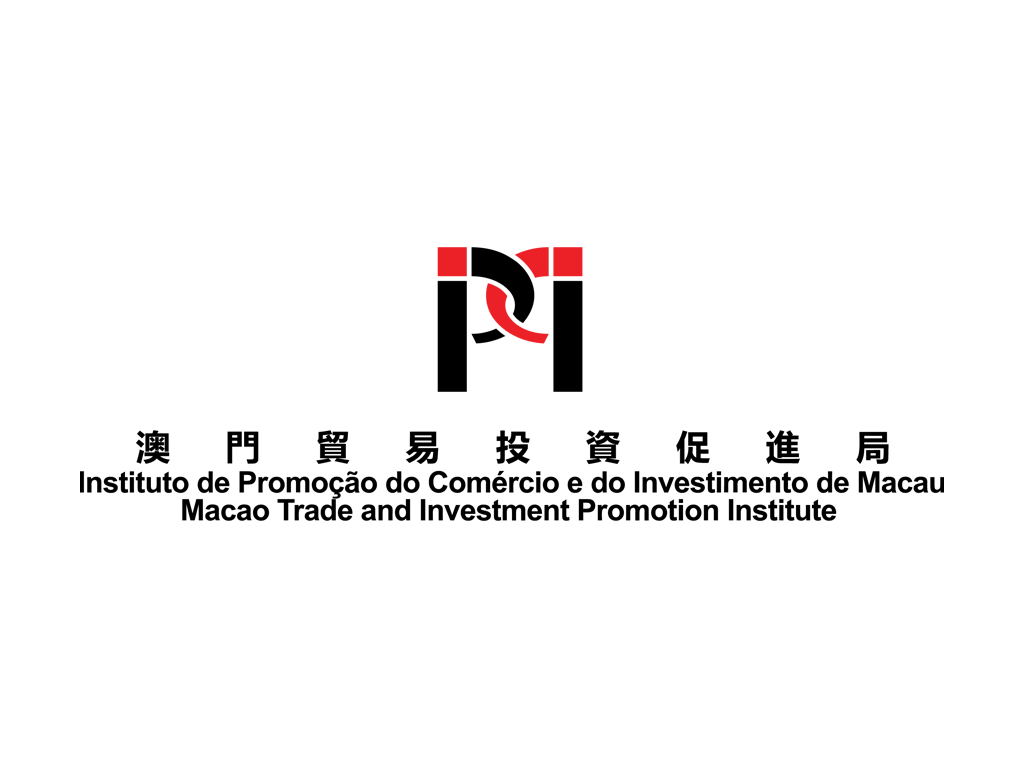Search Issues
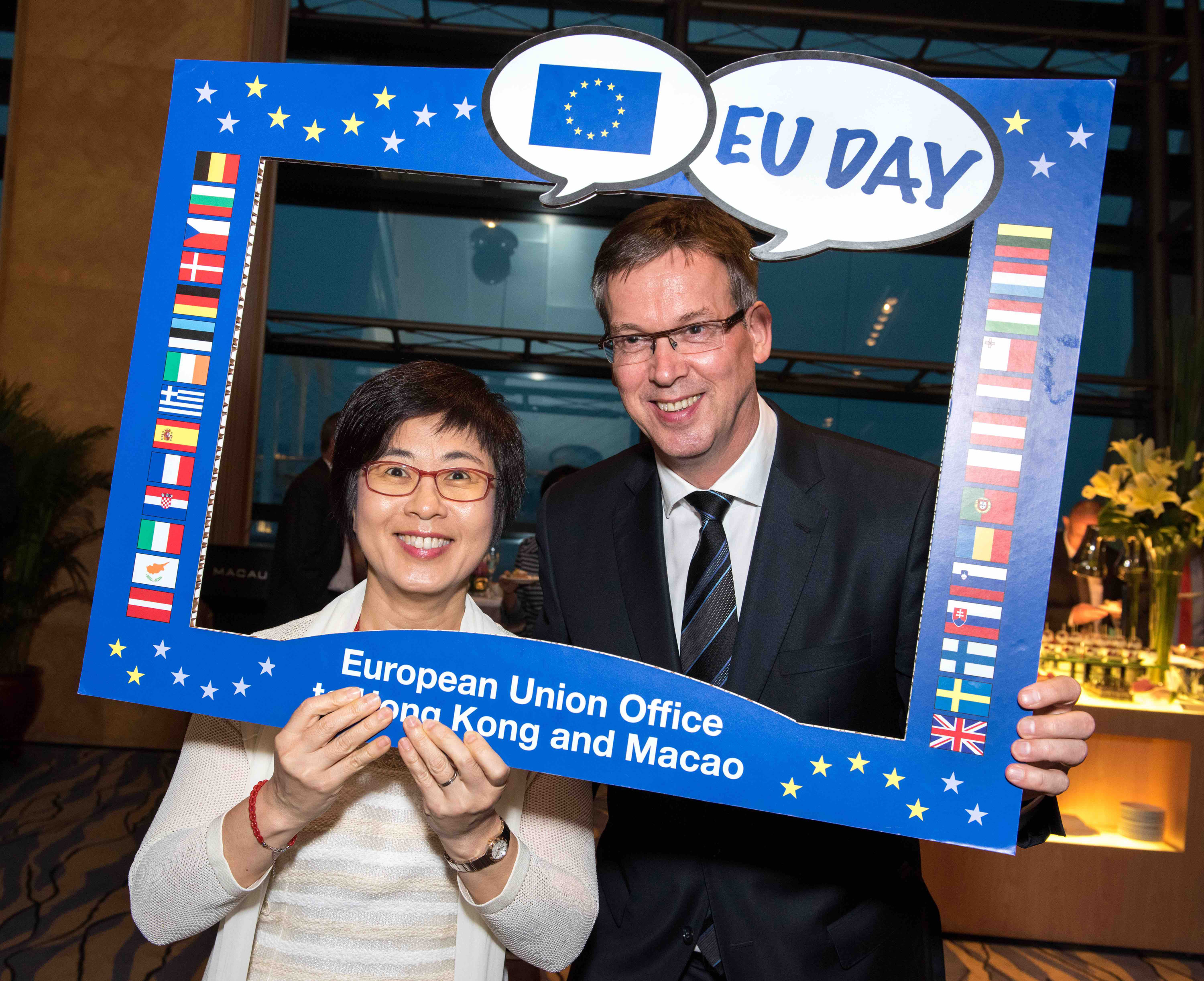
Macao’s Secretary for Administration and Justice, Chan Hoi Fan (left), and Head of the European Union Office to Hong Kong and Macao, Vincent Piket (right)
Macao and the European Union (EU) are expanding the scope of their co-operation, building on years of joint endeavours in several fields. They are now seeking to collaborate in the field of innovation, while a new arrangement for bringing EU companies and the SAR Government together is in the pipeline.
The Head of the European Union Office to Hong Kong and Macao Vincent Piket says of co-operation in innovation: “The Science and Technology Development Fund has set up a matching fund that can provide up to MOP5 million per project to finance the costs of the Macao SAR’s researchers participating in the EU’s flagship R&D programme of Horizon 2020.” Taking part in the programme, Mr Piket says, “will provide the opportunity for Macao researchers to connect with the most competitive counterparts in the EU and the world”.
Horizon 2020 is the biggest EU research and innovation programme, which began in 2014 and will end in 2020. “The collaboration scheme will strengthen EU-Macao cooperation in research and innovation and foster exchanges in academic and industrial research,” Mr Piket says. “It is a potential area for development which can contribute to the economic diversification [of Macao] in the long run.”
After Macao and the EU agreed last year to co-operate more in research and technology, the EU representative office in Macao and the Macau European Chamber of Commerce (MECC) held a seminar earlier this year about innovation in Macao. The Macao Trade and Investment Promotion Institute (IPIM) helped arrange the seminar.
The Secretary of the Board of Directors of MECC Filipe Cunha Santos says co-operation in innovation concentrates mainly on the environment. Several European companies are very advanced in the environmental area. They have know-how on sewage treatment, electricity supply and the development of intelligent cities. The SAR Government would have to be involved if EU companies were to introduce their technology to the city.
Mr Santos is also President of the Macao Delegation of the Portuguese-Chinese Chamber of Commerce and Industry.
Let’s talk
A new arrangement for bringing the Macao authorities and EU enterprises together is needed, Mr Piket believes. “In order to better reflect the dynamic business situation and the practical issues that companies face in doing business in Macao, a regular G2B [Government to Business] dialogue should be established between EU businesses and the [Macao SAR] Government,” he says.
EU companies “would be able to use this platform to communicate with the government on the business environment more generally, as well as any more specific issues which may affect their activities,” he says. “The two sides could jointly discuss and seek to identify possible solutions to resolve any issues.”
Mr Piket thinks the new arrangement “could also provide the government with a forum within which it could solicit views on and assess the effectiveness of relevant policies when and where needed”.
The “Macao-EU business community, represented by MECC and the Macao authorities are looking at possible formats to deliver this platform for exchanges,” he says. “The preparation work is still ongoing, and we expect more concrete actions will be shaped up in the near future,” adds Mr Piket.
Mr Santos believes Macao and the EU could increase their co-operation in several ways. The SAR Government could draft some strategies that would involve some other areas, including technologies related to the environment. “Macao could invite European experts or companies to work together with it,” he adds.
Privilege and luxuries
The value of trade between the EU and Macao grew between 2011 and 2015, even though annual trade shrank in 2014 (see table). Mr Santos says Macao is what he calls “a privileged partner” of the EU, importing and retailing European luxuries, European electrical equipment for motor vehicles, and European food and drink. Britain, France, Germany, Italy, Portugal and Spain are some of the countries exporting goods for Macao to retail. “The EU has been dialoguing with the Macao Government to increase trade,” he says. Mr Piket says Macao “is a growing market for European luxury goods, wine and transport equipment, as gaming operators are developing non-gaming income streams such as luxury shopping”. He says the EU has had trade surpluses with Macao every year since 2009. The EU is Macao’s second-largest trading partner and source of imports after China.
Mr Santos says the drop in annual trade in 2014 was due to Macao importing less retail merchandise. He says EU exports to Macao are increasingly intended for sale in the mass market rather than the high-end market. The “new trade dynamics” means owners of European brands will need to charge less for their products if they expect visitors to Macao to buy them.
“Notwithstanding the sharp contraction in Macao’s economy, EU-Macao bilateral trade increased significantly in 2015,” Mr Piket says.
Eurostat data indicate that the value of annual trade in merchandise grew by 39.3 percent to EUR851 million (MOP7.79 billion) in 2015. “Thanks to the hefty increase of exports of machinery and transport equipment, EU exports to Macao increased by 39.7 percent to EUR756 million,” says Mr Piket. “Other key export items included luxury goods, food and beverages.”
Language and law
Mr Piket believes the EU and Macao are good partners, remarking: “We feel close to each other, through the bonds of history, culture, trade and investment, and people.” Their co-operation in the training of interpreters of Portuguese and spoken forms of Chinese was extended in 2015 by the signing of a memorandum on a new phase of the training programme. “The interpreter training programme meets the mutual needs of the Macao SAR and the EU for qualified interpreters for Chinese and Portuguese,” he says.
Macao and the EU also renewed their co-operation in matters of law in 2015. The purpose of the Third Macao SAR-EU Co-operation Programme in the Legal Field is “strengthening Macao SAR’s legal system and improving training for Macao SAR’s legal practitioners,” Mr Piket says. “We take a keen interest in the development of Macao and its unique role as an economic and cultural platform between China and Europe,” he adds.
SETTING PRIORITIES

The latest joint report on Macao by the European Commission and the High Representative of the Union for Foreign Affairs and Security Policy on Macao says the EU “will continue to work towards deepening its relationship with the Macao SAR, increasing economic and trade links, improving co-operation with business and civil society, and promoting mobility and exchanges with the people of Macao”.
The report, published in April, identifies some priorities, including: “Greater co-operation to diversify Macao’s economy; maximising the potential benefits of the Mainland China-Macao Closer Economic Partnership Arrangement (CEPA) for both local and European companies established in Macao; co-operation on legal and regulatory affairs, research and innovation, as well as continued co-operation on the fight against human trafficking.”
The document mentions that EU-Macao relations continued to flourish and remained “very positive” in 2015, with a growing co-operation portfolio and “solid” trade relations. Despite the adjustment of Macao’s economy, trade between the two sides grew “significantly” last year because of an increase in EU exports of machinery and transport equipment, it adds.
“The EU and its business community are keen to work with the Macao Government in seeking to diversify its economy, improve the sustainability of its economic development and promote bilateral trade and investment flows.”
